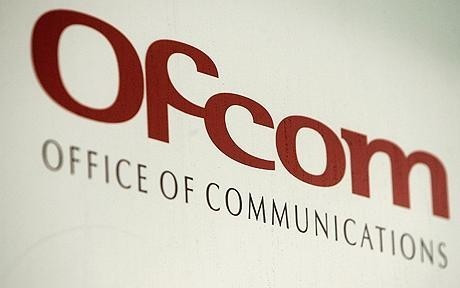Networks 'Disappointed' by 'Excessive' £245m Rise in Annual Ofcom Fees
Mobile networks have expressed their disappointment with Ofcom, as a proposal by the telecom regulator outlines plans to charge an extra £244.6 million per year for the use of its mobile spectrum.

Published on 10 October, the proposal suggests mobile networks Vodafone, O2, EE and owner of the Three network H3G increase their annual payment to Ofcom more than fourfold for use of the 900 MHz and 1800 MHz spectrums.
Upon receiving the 370-page document, Vodafone told IBTimes UK it is "disappointed that Ofcom is proposing a 430% increase in the fees we pay for our existing spectrum at a time when we are investing more than ever in vital national digital infrastructure".
An EE spokesperson added: "The proposed increase in licence fees is excessive at a time when we are investing heavily in the roll out of 4G".
Alarm bells
Adam Kirby of consumer advice website uSwitch.com speaking to the BBC said the dramatic increase in fees could give customers cause for concern.
"These figures may come as a shock to the mobile networks, but more worryingly could sound alarm bells for consumers. The proposed new costs reflect a huge leap in the amount networks will have to pay the regulator for using the spectrum - our concern is that it will be consumers who are left to foot the bill."
The fees currently paid by operators were set several years ago when the frequencies in question were only used for 2G calls, before the smartphone boom saw customers' demand for 3G and 4G data explode. The frequencies have since been "liberated" - meaning they have been recycled to be used for other purposes.
Acting on a request from the government in late 2010 to revise the fees networks pay for their use of the spectrums, Ofcom says that, subject to a consultation period running until 19 December, the new annual fees "are likely to come into effect next year".
A finite resource
The regulator said: "Spectrum is a valuable and finite national resource, and charging for it can incentivise the optimal use of frequencies."
The 900 MHz and 1800 MHz frequencies are used for voice calls, 3G and some 4G services. EE was able to use its allocation of the 1800 MHz spectrum to launch the UK's first 4G network in late 2012, almost a year before rivals Vodafone, O2 and Three could brings theirs to market.
All four major networks purchased additional sections of the 800 MHz and 2.6 GHz frequencies during an auction hosted by Ofcom earlier this year. The auction, which was completed in February, earned £2.34 billion through bids from all the major networks, but this was more than £1bn short of the government's estimate of £3.5bn, and considerably less than the £22bn networks paid for 3G spectrum in 2000.
Ofcom told IBTimes UK that this £1bn shortfall is not related to the spectrum fee increase.
"The decision to revise these fees was made back in 2010," a spokesperson said. "The decision to revise fees and a large part of the methodology for arriving at the revised fees was decided years before we even knew how much the 4G auction was going to raise."
Vodafone and O2 each currently pay Ofcom £15.6m per year, and under the new proposal this would increase to £83.1m each. EE's payment of £24.9m would increase to £107.1m and H3G would be asked to up its contribution from £8.3m to £35.7m.
Alternative
Justifying the increased cost, Ofcom said it had calculated the proposed fees by analysing the sums paid in the 4G auction, comparing the bids with spectrum auctions abroad, and assessing "the technical and commercial characteristics of the UK spectrum bands".
Instead of increasing network fees, Vodafone suggests an alternative solution would be for Ofcom to encourage private investment, such as the £900m the operator has spent this year improving its own network.
Vodafone added: "The regulator should be encouraging such private sector investment in infrastructure and new services like 4G, which will benefit consumers, businesses and the wider British economy for many years to come."
© Copyright IBTimes 2025. All rights reserved.






















